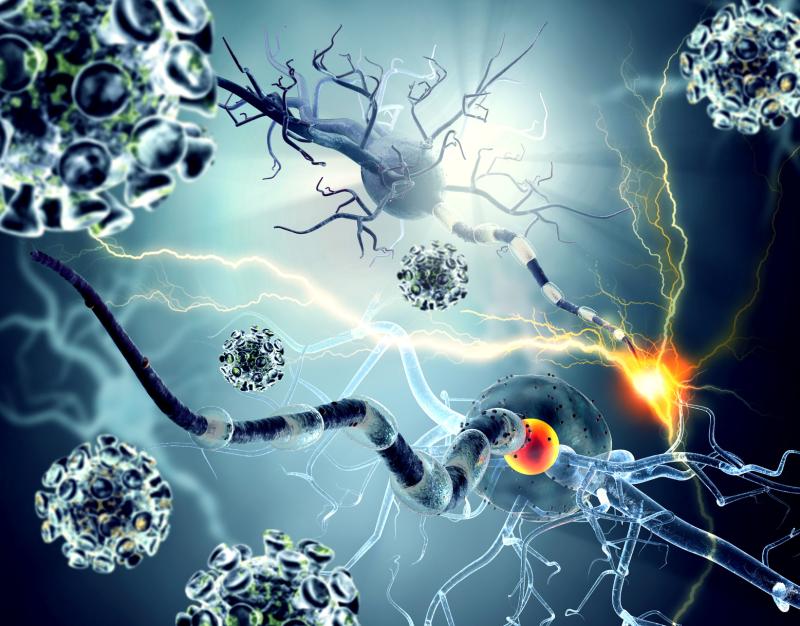 Multiple Sclerosis (MS) is a debilitating disease, in which nerve damage affects communications between the brain and body. HSCT could provide the therapeutic answer for MS patients.
Multiple Sclerosis (MS) is a debilitating disease, in which nerve damage affects communications between the brain and body. HSCT could provide the therapeutic answer for MS patients.There is not enough evidence to support the claim that multiple sclerosis (MS) disease-modifying therapies (DMTs) increase the risk of infection with SARS-CoV-2, the virus that causes the novel coronavirus disease (COVID-19), suggests a recent review article.
“To date, there are no conclusive data regarding the effect of DMTs on the frequency and course of SARS-CoV-2 including the serious COVID-19 complications [such as] acute respiratory distress syndrome (ARDS),” the researchers said.
“More data are emerging, including through the institution of organized registries, which should provide greater evidence-based insights moving forward,” they added.
In this review, the researchers addressed concerns regarding the impact of MS DMTs by evaluating the current state of knowledge in relation to the viral aetiology of COVID-19, the mechanisms of injury by SARS-CoV-2 infection, and the effect of individual DMTs on the risk of infection and COVID-19 expression.
Data were limited, but MS DMTs did not appear to significantly increase the risk of acquiring symptomatic SARS-CoV-2 infection. Furthermore, the severe morbidity and mortality of SARS-CoV-2 infection was primarily caused by an overly robust immune response rather than the consequence of unchecked viral replication. [Neurol Neuroimmunol Neuroinflamm 2020;doi:10.1212/NXI.0000000000000761]
Initial anecdotal reports indicated that MS patients, including those treated with commonly used DMTs, were neither at increased risk of contracting symptomatic SARS-CoV-2 viral infection nor at higher risk of severe COVID-19 complications as compared with the population at large.
In addition, there could be reasons, albeit theoretically, to consider the potential mitigating effect of some MS DMTs with respect to the development of COVID-19 ARDS.
“In general, and in keeping with the Institute for Multiple Sclerosis Research report, we recommend that most patients with MS continue on their DMT, particularly those on platform therapy for whom the risk of SARS-CoV-2 infection and COVID-19 is minimal,” the researchers said.
“Providers will have to tailor decisions to individual patients, particularly for patients with an increased risk of either acquiring infection (eg, healthcare workers) or for the more serious COVID-19 complications (eg, the elderly, those with relevant medical comorbidities),” they added.
However, for patients on DMT that are considered vulnerable but with infrequent dosing (alemtuzumab and cladribine), aggressive risk mitigation strategies must be applied, including social isolation and frequent hand washing.
Of note, the decision to discontinue or delay DMT must be weighed against the risk of re-emergence and even rebound of MS activity after cessation, as reported with natalizumab and fingolimod, according to the researchers. [Ther Adv Neurol Disord 2015;8:233-238; Brain Behav 2017;7:e00671; J Neurol 2014;261:1170-1177]
“The unclear effect of DMTs on SARS-CoV-2 infection and the serious COVID-19 complications poses a unique challenge to our field, but practice can be guided by current knowledge of DMTs and emerging data from other parts of the world,” the researchers noted.